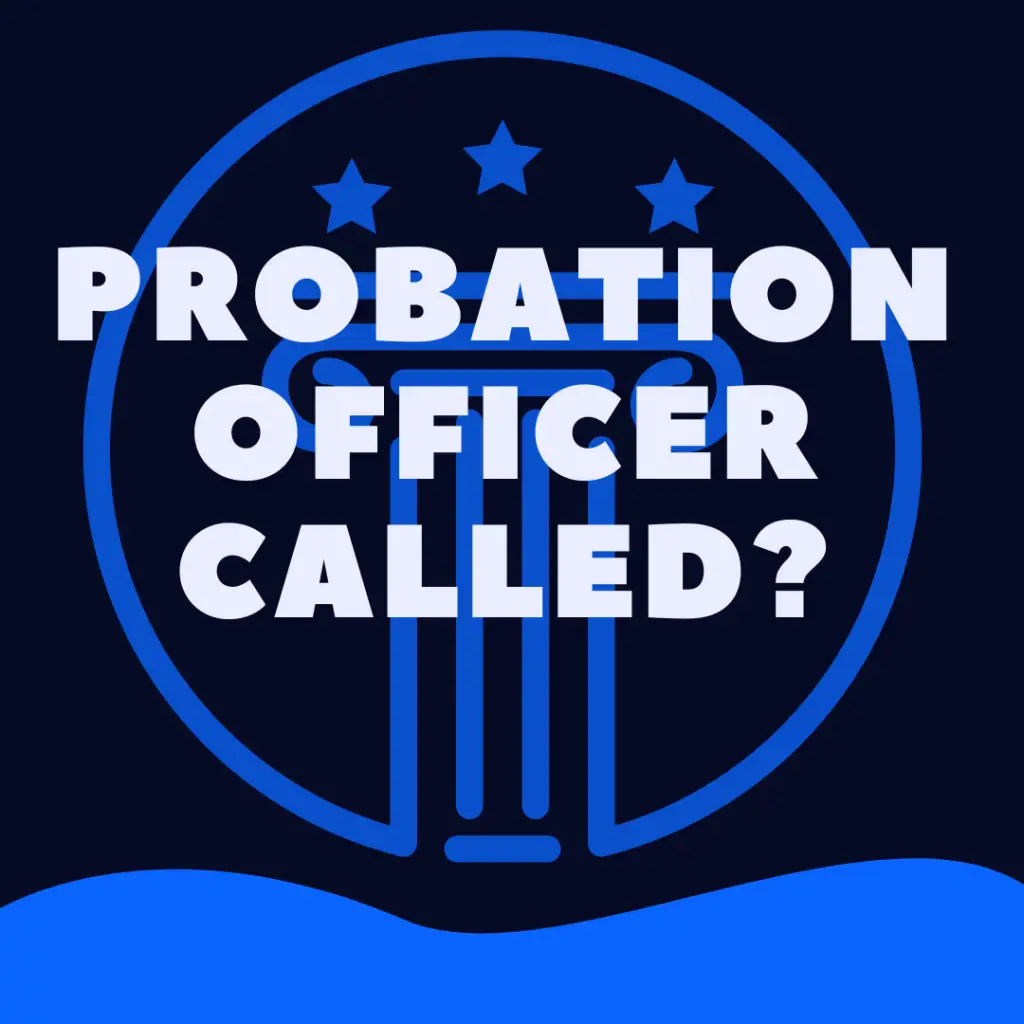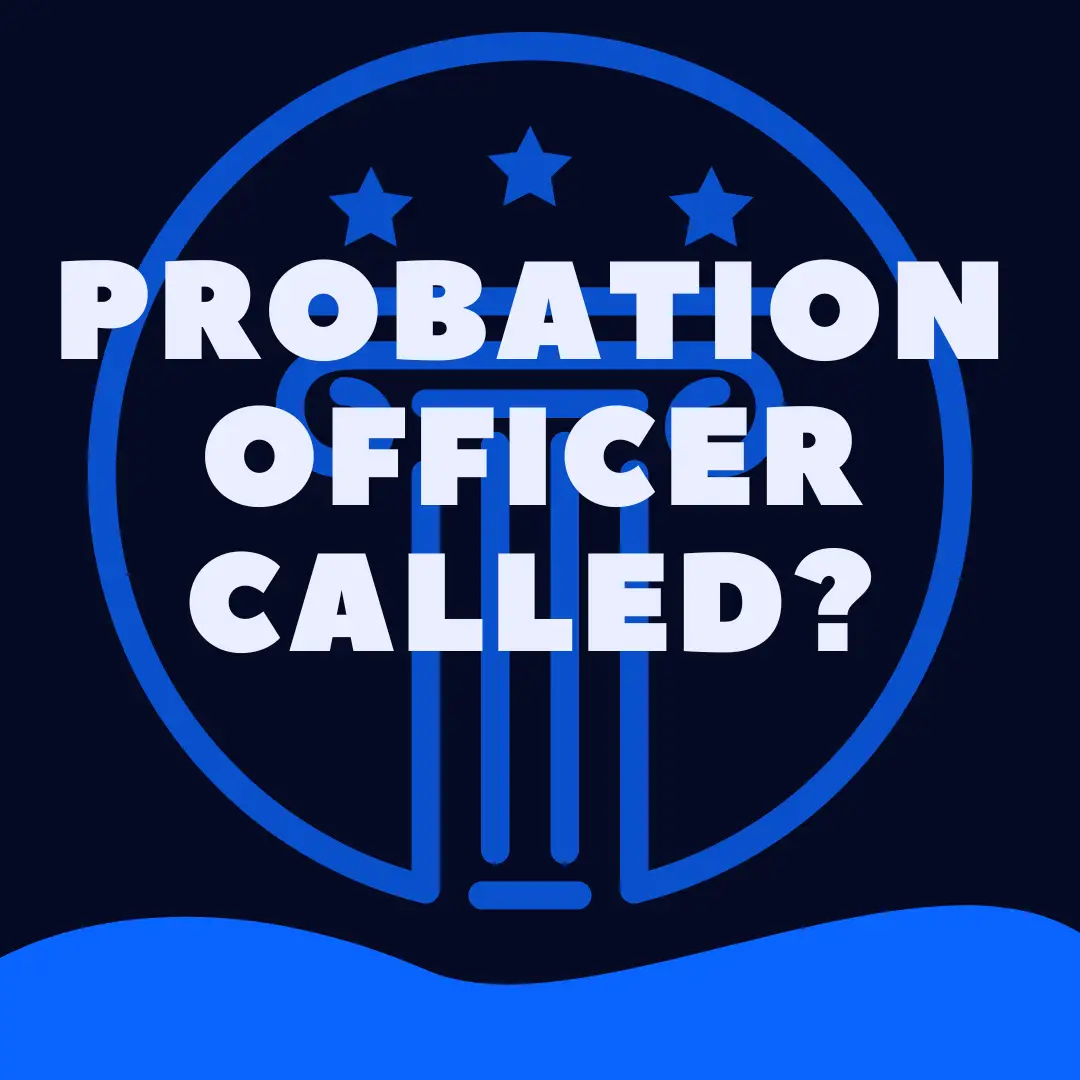There are many reasons a probation officer would call you, and not all of them are bed.
In the article that follows, we’ll explain.
Why Would a Probation Officer Call You? (Explained)
Disclaimer
The contents of this web page are for informational purposes only, and nothing you read is intended to be legal advice. Please review our disclaimer about law/legal-related information on this website before taking action based upon anything you read or see.
While there are any number of reasons a probation officer might contact the defendant, here’s some of the most likely ones.
Staying In Good Contact
Depending on the case, a defendant’s previous conduct, and the age of the probation, the officer may call just to see if the defendant will answer his calls, or call him back.
Updating Records
The probation officer may call to make sure that the number he has for the defendant is still a good one.
He may also use the contact as an opportunity to confirm the defendant’s other contact info, employment, school, or other details in the file.
Checking In
Sometimes the probation officer hasn’t heard from the defendant in a while, and he’ll be looking for a quick update from the defendant.
Providing Information
Sometimes the probation officer may call because he has information that the defendant needs, such as the phone number for a particular service provider, the date for support group meeting, or an upcoming court date.
Sometimes the call is a ‘head-up,’ meaning that the defendant isn’t in violation yet, but that he could b e if he continues doing/not-doing something.
Requesting a Meeting
The probation officer might need to see the defendant in person.
There are many reasons why a probation officer might want to see the defendant in person.
This could be a regular periodic check in, or it could be because the defendant has not been compliant with something.
Time For a UA
Many probation orders require that defendants submit to substance abuse testing (urine or blood) during the term.
The call could be to notify the defendant of his need to report to his test within a certain number of hours.
Requesting Information
Sometimes the probation officer needs more information from the defendant about something that’s not important, or to clarify some information previously provided by the defendant.
However, this could also be the probation officer doing some investigating about a potential probation violation.
Violation
The call could be the result of a defendant’s violation of the terms of his probation.
The probation officer might be trying to decide whether to work with the defendant or to pursue a probation violation.
Warrant
Another possibility is that a warrant is out for the defendant’s arrest.
This could be associated with the same case or another case.
The probation officer might be trying to gather information to assist with the execution of the warrant.
What Should a Defendant Do If His Probation Officer Calls Him?
First and foremost, the defendant should remember that the terms of his probation dictate what he has to do during probation.
If the probation terms order him to stay in good contact with his probation officer, then he needs to do so.
If the probation terms order him to submit to substance abuse testing if requested, he needs to do so.
If a probationer is not compliant with the terms of his probation, he might have some fear or anxiety about what could result from calling in to his probation officer or answering the officer’s call.
But given what the probationer is facing if he fails to stay compliant with the requests of the probation officer, simply ignoring the officer’s phone call is not an option.
If the defendant decides to call in (returning the officer’s call), he can remember that the call might have multiple purposes, some innocuous, and some serious.
The call might be routine, or the call might be to gather evidence against the defendant for some purpose the defendant does not yet know about (like another criminal case or a warrant).
The defendant is the one who knows his situation and what he has done (or not done).
If the defendant thinks that being 100% honest with the probation officer puts him in a position of facing additional criminal charges or the revocation of his probation, it is generally recommended that the defendant confer with a criminal defense attorney to talk through the risks of what to say and how much to say.
One thing that is not an option is ignoring the probation officer.
The probation officer will not forget about the defendant.
Wrap Up
Want to learn more about your criminal justice system?
Browse our free legal library guides for more information.
You might also like:
- How Do Probation Officers Find Out About Police Contact?
- Tips For Living With Someone On Parole
- Can You Be On Parole and Probation at the Same Time?
- Can a Probation Officer Tell You Who You Can Date?
- Can a Probation Officer Separate a Husband and Wife?
- Why Would a Probation Officer Call You?
- Can Probation Officers Read Your Text Messages?
- Can Probation Officers Look At Your Facebook?
- Can My Probation Officer Find Out If I Left The State?
- Can a Probation Officer Change Your Conditions?



